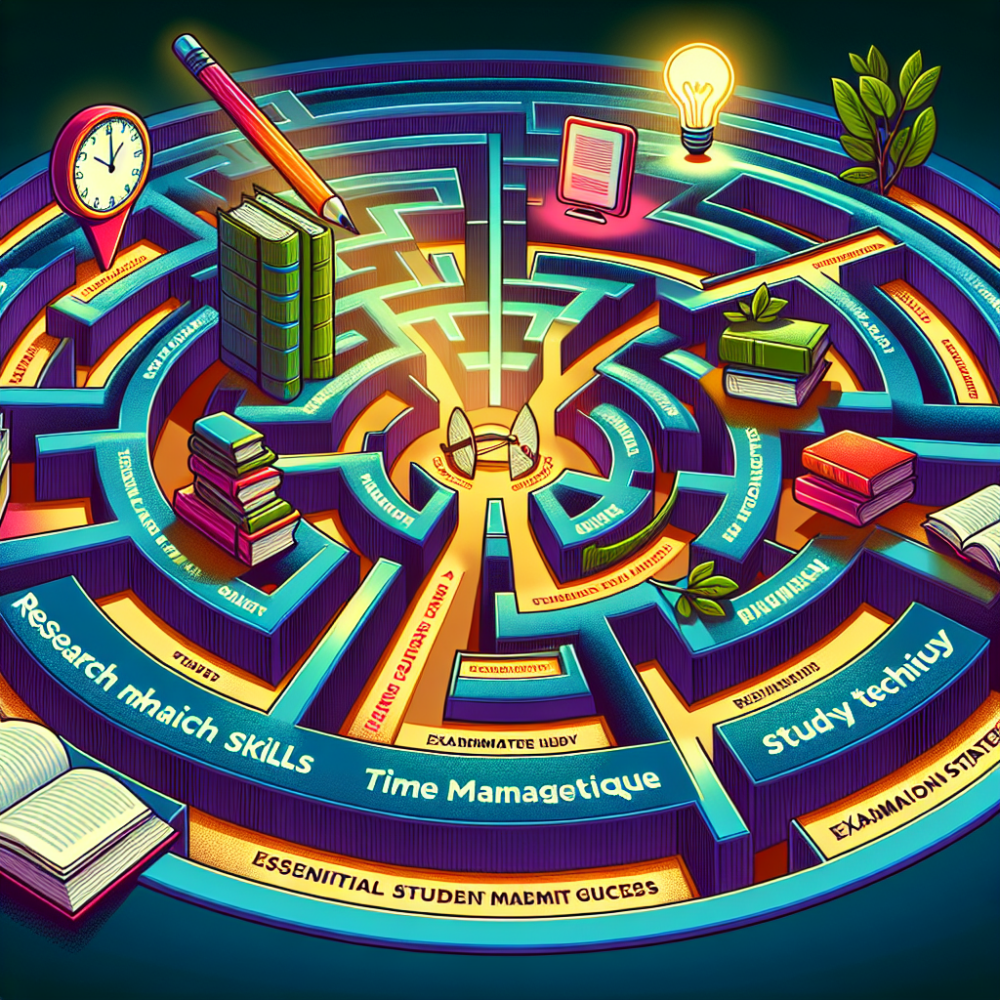
Starting college or university can be overwhelming. With new subjects to learn, a different environment, and unfamiliar expectations, many students find themselves lost in a maze of challenges. However, with the right strategies and resources, academic success is within reach. This guide serves as your compass, providing essential tips to help you thrive academically.
Time Management: Mastering the Art of Balancing
One of the most crucial skills for academic success is effective time management. College life requires juggling multiple responsibilities such as attending classes, completing assignments, studying for exams, and engaging in extracurricular activities. To master this balancing act:
- Create a detailed schedule: Use online tools or apps to create a schedule that includes all your commitments and deadlines.
- Prioritize tasks: Identify urgent and important tasks and tackle them first.
- Avoid procrastination: Break down larger assignments into smaller tasks to make them less overwhelming.
- Stay organized: Use a planner or digital calendar to keep track of deadlines and important dates.
- Take breaks: Remember to schedule breaks for relaxation and self-care to avoid burnout.
Note-Taking Strategies: Unlocking the Power of Information
Good note-taking skills are essential for retaining information and staying engaged during lectures. Here are some effective strategies:
- Active listening: Pay attention and engage with the material being presented.
- Use abbreviations and symbols: Develop your own shorthand system to quickly jot down key points.
- Organize your notes: Divide your notebook or digital document into sections for each subject.
- Review and summarize: Regularly review and condense your notes to reinforce learning.
- Consider collaborative note-taking: Form study groups to share and compare notes.
Effective Study Techniques: Crack the Code to Success
Studying efficiently is vital for academic success. Here are some proven techniques:
- Active learning: Engage with the material through activities such as summarizing, teaching others, or discussing concepts with peers.
- Create a productive study environment: Find a quiet place free from distractions where you can focus.
- Break it down: Divide your study sessions into manageable chunks with short breaks in between.
- Vary your studying techniques: Mix up methods like flashcards, practice quizzes, and concept mapping to enhance understanding and retention.
- Use online resources: Take advantage of educational websites, video tutorials, and online practice materials tailored to your subjects.
Maintaining a Healthy Work-Life Balance: Prioritizing Self-Care
In the pursuit of academic success, it’s important not to neglect your well-being. Here are some tips for maintaining a healthy work-life balance:
- Schedule relaxation time: Allocate specific periods for hobbies, exercise, or spending time with friends and family.
- Practice self-care: Engage in activities that promote mental and physical well-being, such as meditation or journaling.
- Avoid overcommitment: Be selective about extracurricular activities to ensure you have enough time for academics and personal life.
- Seek support when needed: Reach out to counselors, mentors, or support groups if you’re experiencing academic or personal challenges.
- Get enough sleep: Prioritize a regular sleep schedule to maintain focus and overall health.
Frequently Asked Questions (FAQs)
1. What can I do if I feel overwhelmed with my coursework?
If you’re feeling overwhelmed, start by breaking down tasks into smaller manageable parts. Seek assistance from professors or take advantage of educational resources and tutoring services offered by your institution.
2. How can I improve my time management skills?
To improve time management skills, create a schedule, prioritize tasks, avoid procrastination, and stay organized. Utilize online tools and apps that can help you track deadlines and commitments.
3. What should I do if I’m struggling with note-taking during lectures?
If you’re struggling with note-taking, try active listening techniques, develop your own shorthand system, and organize your notes by subject. Consider collaborating with classmates to compare notes and fill in any gaps.
4. How can I make studying more effective?
To make studying more effective, engage in active learning techniques such as summarizing information, teaching others, or discussing concepts with peers. Create a dedicated study environment free from distractions and utilize online resources tailored to your subjects.
5. Why is maintaining a healthy work-life balance important?
Maintaining a healthy work-life balance is important for overall well-being. It helps prevent burnout, promotes mental health, and allows time for relaxation and pursuing personal interests outside of academics.

















